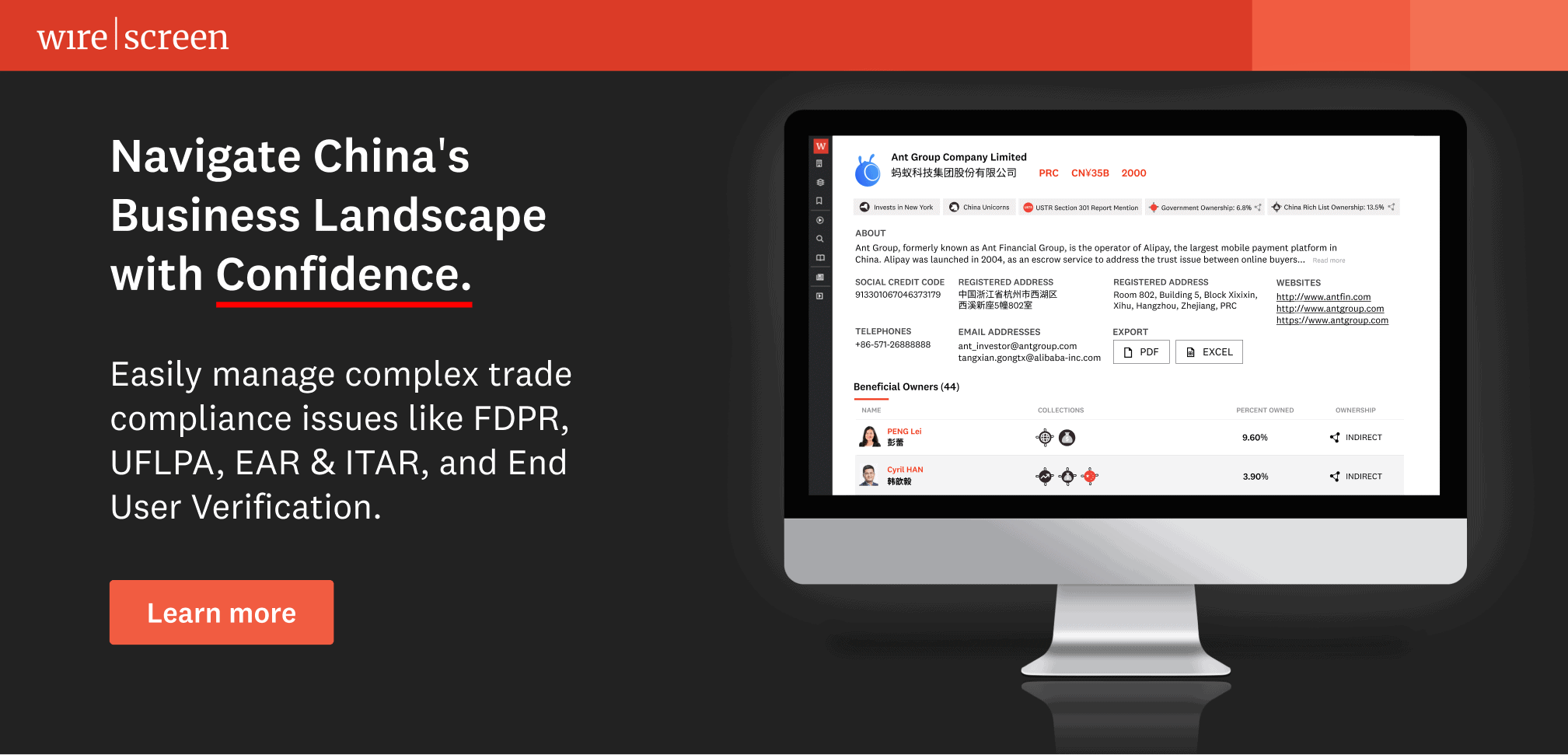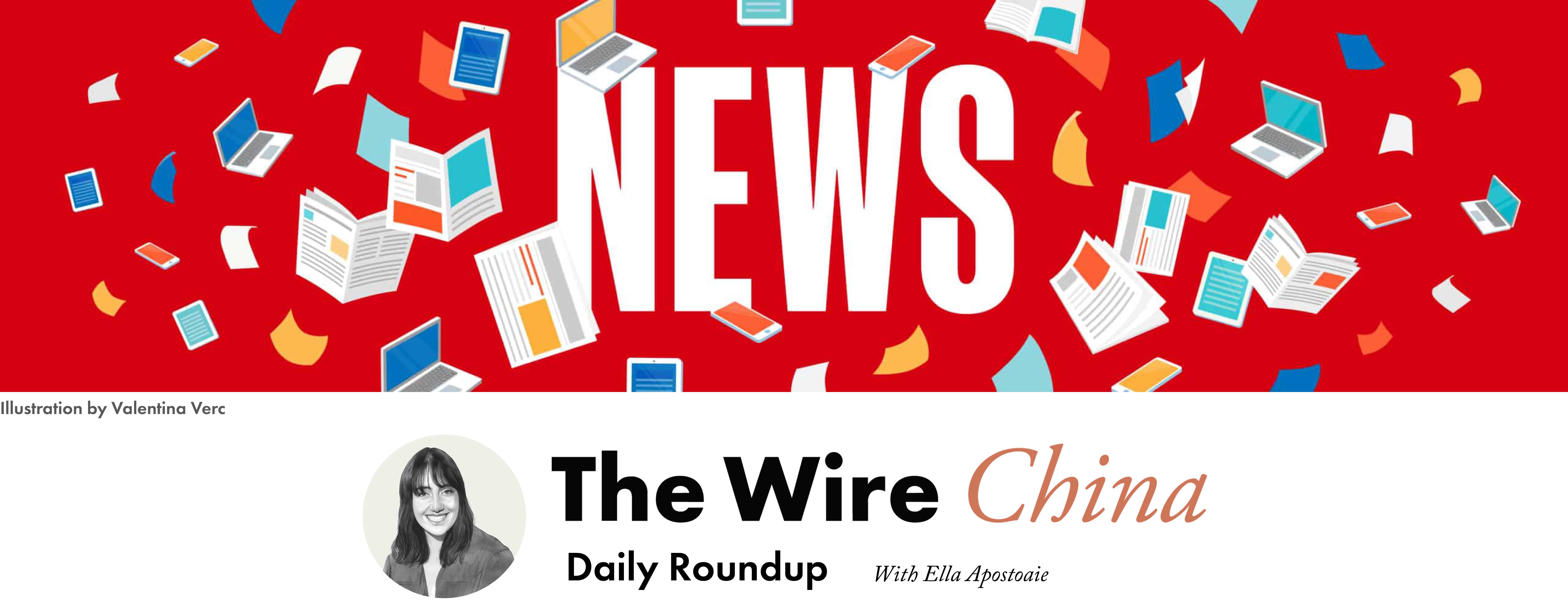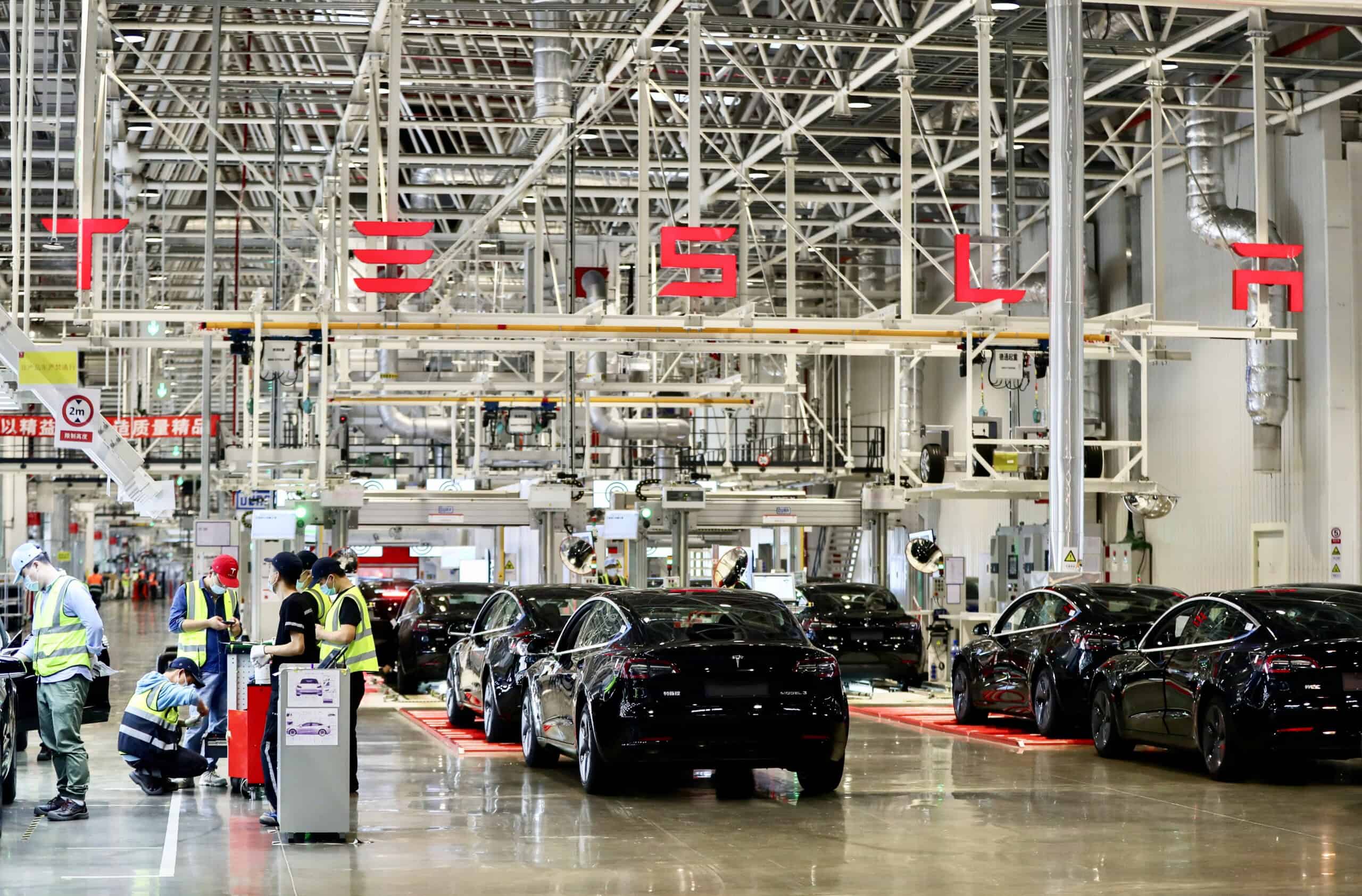Good Morning. Welcome to The Wire’s daily news roundup. Each day, our staff gathers the top China business, finance, and economics headlines from a selection of the world’s leading news organizations.
Paid subscribers automatically have this list emailed directly to their inboxes every day by 10 a.m. EST. Subscribe here.
The Wall Street Journal
- Hermès Bucks Luxury Slowdown With Higher Sales but Flags Weakness in China — The Birkin handbag maker reported higher sales for the second quarter, with wealthy customers helping it defy a global slowdown in demand that is troubling the luxury sector, but flagged signs of weakness in China.
The Financial Times
- Apple’s iPhone elbowed out of top 5 in China by domestic smartphone rivals — Huawei and Xiaomi gain ground in second quarter as Apple’s share of key market falls.
- Indonesia moves to reduce Chinese ownership of nickel projects — Jakarta wants to help its industry qualify for tax credits under Joe Biden’s initiative to build a US electric vehicle supply chain.
- Younger Chinese fume at call to raise retirement age — Communist party meeting sparks online row as experts warn ageing population makes change ‘inevitable’.
The New York Times
- China Braces for Typhoon Gaemi After Devastation in Taiwan and the Philippines — The storm has already left a trail of destruction in Taiwan and the Philippines, where it killed at least 15 people.
- Russia and China Conduct First Joint Bomber Patrol Near Alaska — Two Russian and two Chinese bombers patrolled the airspace near American territory and were intercepted by U.S. and Canadian jets.
- China Rules Solar Energy, but Its Industry at Home Is in Trouble — The solar sector shows how China conducts industrial policy: It chooses industries to dominate, floods them with loans and lets companies fight it out.
- China Is Closing the A.I. Gap With the United States — In recent weeks, Chinese tech companies have unveiled technologies that rival American systems — and they are already in the hands of consumers and software developers.
- Opinion: Beijing Can Take the South China Sea Without Firing a Shot — Over the past 15 years, China has expanded its once-minimal military presence in the South China Sea into a significant one. By Oriana Skylar Mastro.

Caixin
- China Boosts Subsidies for Consumers Who Trade In Old Cars for New Ones — The 300-billion-yaun program aims to spur economy and raise fuel efficiency.
- China’s Wind, Solar Power Capacity Tops Coal for First Time — Wind and solar farms account for 38.4% of China’s total power capacity, surpassing coal power’s 38.1%, according to a new report.
- Charts of the Day: China’s Smartphone Brands Take a Bite Out of Apple — The iPhone-maker falls out of the top five brands in the second quarter, for the first time in nearly four years.
- China Eases Hotel Restrictions to Attract Foreign Tourists — New rules require foreign exchange service, simpler guest registration.
- Former Provincial Governor Surrenders to Graft Investigators — Luo Baoming is suspected of ‘serious violations of discipline and law’ — a common euphemism for corruption.
South China Morning Post
- Shanghai’s retail sales sink, revealing weak link in China’s consumption — As China attempts to boost domestic consumption, financial hub Shanghai has reported a notable decline in retail sales for June, showing some weaknesses have persisted.
- As Micron president visits China, chip maker stays silent in US-China balancing act — Sanjay Mehrotra was among a group of American executives visiting China this week, but the memory chip maker avoided bringing attention to it.
- China and India pledge to boost border peace efforts as Wang Yi urges ‘rational approach’ — While meeting Chinese counterpart for second time this month, top Indian diplomat says Himalayan border dispute has cast shadow over ties.
- At Paris Olympics, Chinese manufacturers won big before the Games even started — The 2024 Summer Games may be French, but much of the equipment and related accoutrements were made in China, owing to a lack of ‘comparable competitors’ in global manufacturing.
- Alibaba puts Olympics on the cloud, adding AI services while taking over for satellite — The Chinese tech giant has partnered with the Olympics to distribute the Paris Games online, replacing a 60-year-old satellite system as the main distribution channel.
Nikkei Asia
- Chinese state enterprises to pour $414bn into equipment upgrades — Chinese state-owned enterprises will invest $413.8 billion over the next five years to upgrade their equipment, as the country races to bolster its industrial supply chain as laid out in a key economic blueprint.
- Pakistan under pressure to renegotiate hefty Chinese power deals — Finance Minister Muhammad Aurangzeb and Energy Minister Sardar Awais Ahmad Khan Laghari are in Beijing until Friday for talks with Chinese authorities.
- China’s central bank has been a big buyer of gold. Will it continue? — Getting a clear picture of the central bank’s moves in the market is difficult. Gold dealers around China clam up when the topic is broached in interviews or conversation.
- Nippon Steel-Baosteel split closes book on Deng Xiaoping’s Japan legacy — Deng was the first top Chinese leader to pay an official visit to Japan since the establishment of the communist regime three decades earlier, and he took full advantage of the opportunity to get business deals rolling, including through three landmark factory visits.
- China says Philippine allies meddling in South China Sea dispute — After the ASEAN-China meeting, a senior official from one ASEAN member state told Nikkei Asia, Wang “said that it’s not good that a third party is involving itself in the disputes.”
Bloomberg
- China Weighs Tenfold Fee Increase on High-Frequency Traders — The proposals follow up on new rules earlier this year for programmed transactions, with officials pledging to slow high-frequency trading by raising costs.
- Hungary Embraces China Loan Financing After €1 Billion Deal — Hungary said it took a €1 billion ($1.1 billion) loan in April from China, adding that such financing is likely to become more widespread in the future as economic links with the Asian nation grow.
- US Must Crack Down on Illegal Vapes From China, BAT CEO Says — A wave of illegal vapes arriving in the US from China is hurting sales of legal cigarette alternatives, according to the chief executive officer of British American Tobacco Plc.
- Cash-Hungry Canadian Miners Test Grey Area of Anti-China M&A Rules — Nearly two years after Canada moved to restrict foreign investment in the country’s mining sector, minerals explorers and developers are testing the limits of those rules.
- Chinese Colleges Extend Postgrad Programs as Job Pressure Builds — A flurry of Chinese universities are extending the duration of their postgraduate programs as the job market in the world’s second-largest economy remains sluggish.
Reuters
- China veers off beaten path with consumer stimulus — After unshackling the economy from three years of COVID-19 restrictions, Chinese officials had hoped that stimulating the industrial sector would stabilise the job market and lead to higher wages and consumption.
- U.S. told Philippines it made ‘missteps’ in secret anti-vax propaganda effort — The U.S. Defense Department admitted that it spread propaganda in the Philippines aimed at disparaging China’s Sinovac vaccine during the COVID-19 pandemic, according to a document cited by a former top government official.
- US military, seeking strategic advantages, builds up Australia’s northern bases amid China tensions — The U.S. military is building infrastructure in Australia to help it project power into the South China Sea if a crisis with China erupts, a Reuters review of documents and interviews with U.S. and Australian defence officials show.
Other Publications
- POLITICO: Austin sees new Chinese, Russian military cooperation on eve of visit to region — An unprecedented exercise by Chinese and Russian bombers forced the U.S. and Canada to scramble fighter planes along the Alaskan coast.
- CSIS: Ambassador Nicholas Burns on the U.S.-China Relationship — China has emerged as one of the 21st century’s most consequential nations, making it more important than ever to understand how the country is governed.
- The Guardian: ‘I did it as quietly as I could’: the navy chief who wrecked his ship to scupper China’s ambitions — Vice Admiral Eduardo Santos was in charge of the Philippine navy at a time of ‘creeping invasion’ by China. Then along came an unusual idea.
- PIIE: China’s updated playbook for reviving growth risks more tensions with the world — As expected, there was limited indication of new policy approaches to revive its slowing economy and recover from a real estate crisis.




